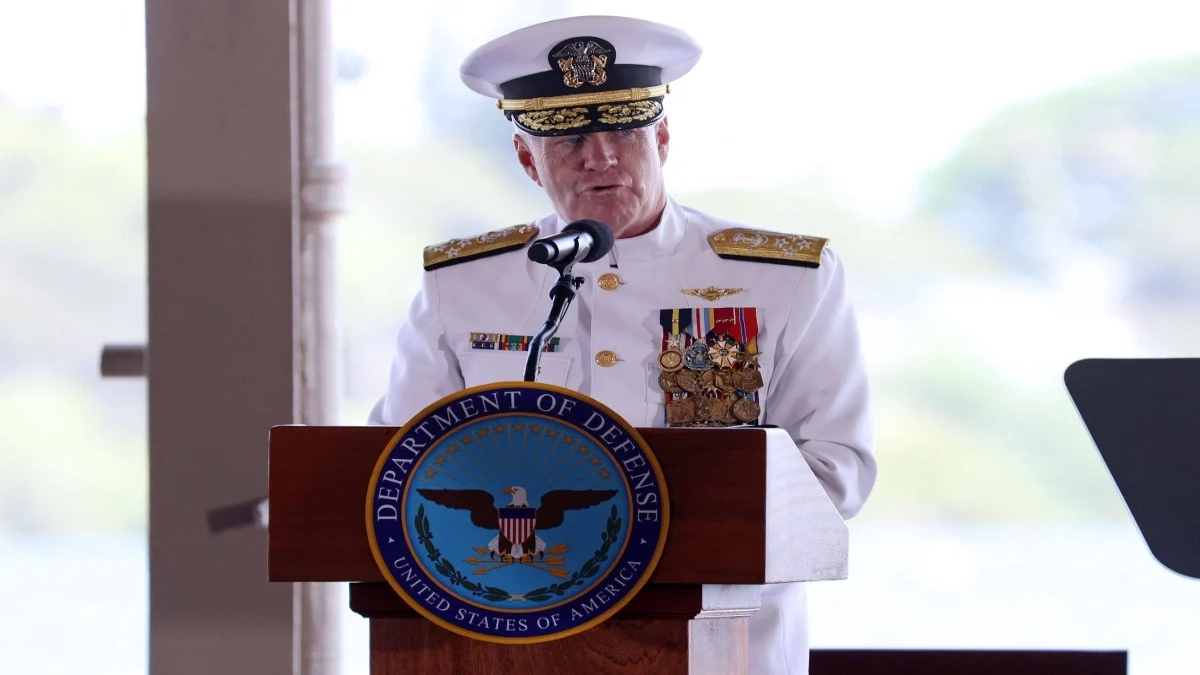A top US admiral in the Pacific has revealed US strategy to deter China from invading Taiwan, saying the enemy may face a large, lethal drone force meant to make its military “miserable”.
According to Admiral Samuel Paparo, the “Hellscape” strategy is designed to distract China and buy the US time to respond.
“I want to turn the Taiwan Strait into an unmanned hellscape using a number of classified capabilities,” The Washington Post quoted Paparo, the commander of US Indo-Pacific Command, as saying at the International Institute for Strategic Studies’ Shangri-La Dialogue Summit.
“I can make their lives utterly miserable for a month, which buys me the time for the rest of everything,” added Paparo.
Asked for further details, Paparo was tight-lipped. “I can’t tell you what’s in it. But it’s real and it’s deliverable,” he told the Washington Post.
What is ‘unmanned hellscape’ strategy?
The strategy involves deploying thousands of unmanned surface ships, aerial drones and submarines to surround the island to counter Chinese forces the moment they cross over into the Taiwan Strait, effectively serving as a first line of defence.
Implementing such a tactic necessitates substantial investments in cost-effective, dependable drones — a goal the US has been pursuing through its Replicator initiative. The Department of Defence formally unveiled this program last year, which is a long-term plan to field thousands of autonomous systems.
Although advancements on this bold strategy have largely occurred without fanfare, there have been discernible indications of progress.
According to a South China Morning Post report, in March, Deputy Defence Secretary Kathleen Hicks announced that the Pentagon is allocating $1 billion this fiscal year to the Replicator program. A few capabilities have been highlighted as necessary for the first drones in the programme, and the Pentagon is working with defence partners to develop and acquire these systems, added the report.
The Replicator program is taking cues from the Russia-Ukraine war, Paparo told the Post, as Ukrainian forces have broken new ground in using drone technology to stave off Russian forces.
Impact Shorts
More ShortsLast summer, Hicks highlighted Replicator’s objective to neutralise China’s predominant strength — its sheer scale: “More ships. More missiles. More people.” She said “we’ll counter the [People’s Liberation Army’s] mass with mass of our own, but ours will be harder to plan for, harder to hit, harder to beat.”
Former INDOPACOM commander expressed last year that the United States’ unmanned capabilities will provide a significant asymmetric advantage.
“Operational concepts that we are working through are going to help amplify our advantages in this theatre,” he said, adding, “There’s a term, hellscape, that we use.”
On its part, China has prioritised enhancing its military strength, evidenced by heightened military activities near Taiwan in recent years. According to Paparo, China’s annual defence budget is estimated to be approximately $700 billion, triple the amount publicly disclosed by Beijing. The National Defense Authorization Act (NDAA) earmarked approximately $840 billion for defense expenditure in fiscal year 2024.
Chinese military drill around Taiwan sounds alert
Paparo’s comments on the “Hellscape” strategy come after a significant Chinese military exercise near Taiwan, where they strategically encircled the island, demonstrating their joint force prowess.
This exercise not only showcased China’s capability to swiftly impose a blockade, alarming Taiwan and the US, but it also served as a valuable learning experience for the US military.
After the drills concluded, Paparo said they “looked like a rehearsal” for an invasion, telling Japan’s Nikkei newspaper:
“We watched it. We took note. We learned from it. And they helped us prepare for the future,” added Paparo.
Over the past four years, China’s military has significantly ramped up its activities around democratically-governed Taiwan. Beijing views the island as its own territory, a position the government in Taipei strongly rejects.
Chinese President Xi Jinping has ordered the country’s military to be ready to invade Taiwan by 2027.
With inputs from agencies
)